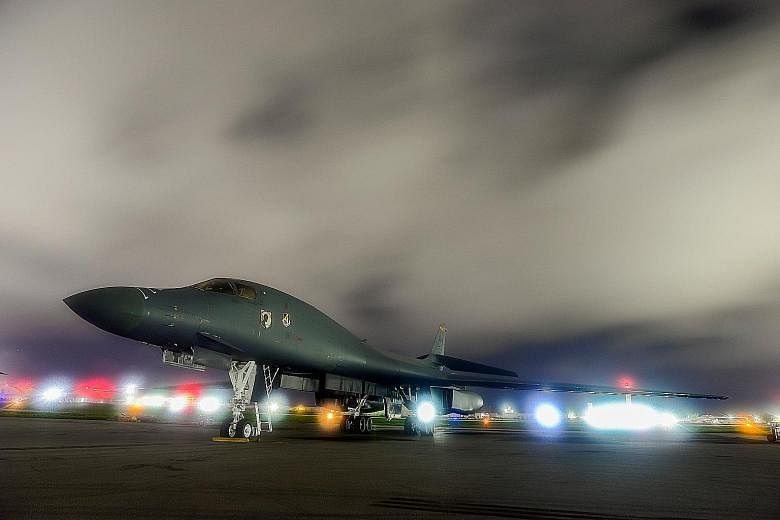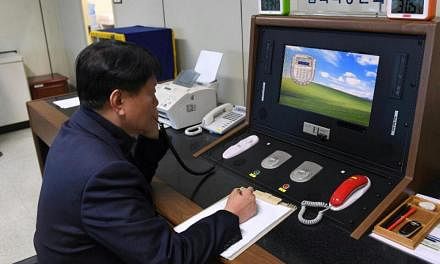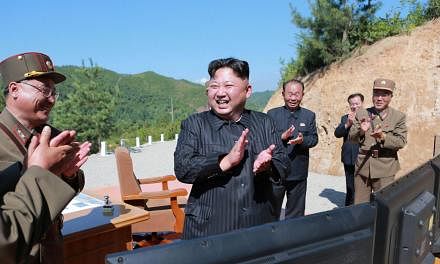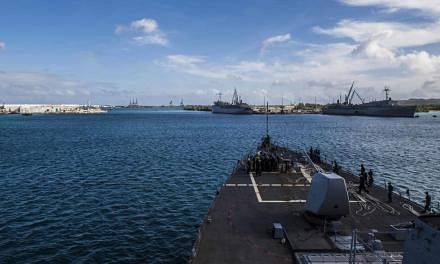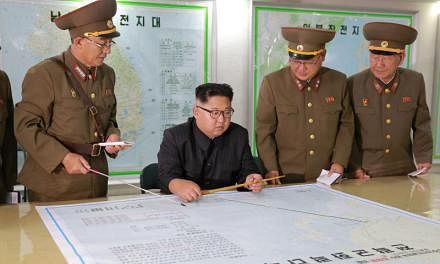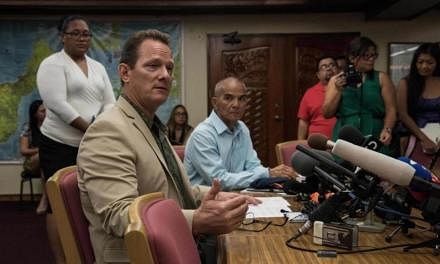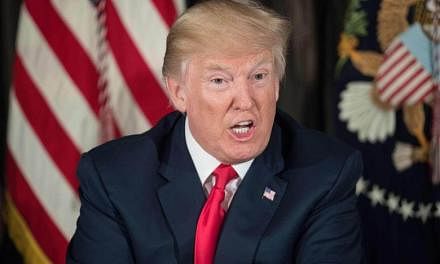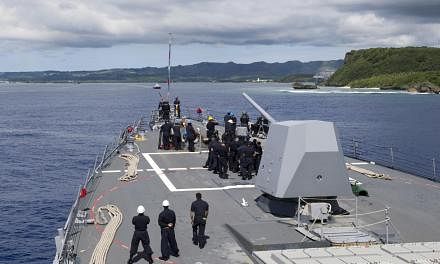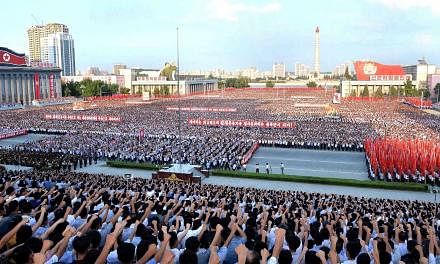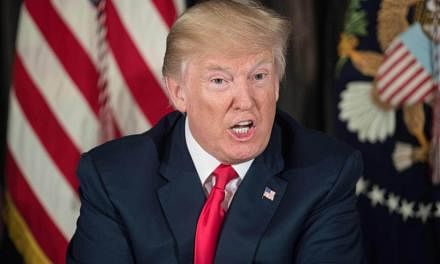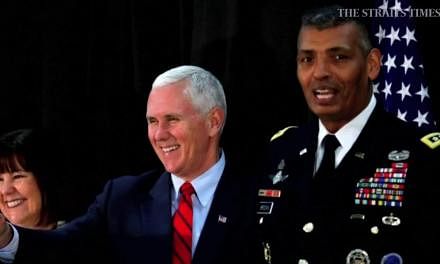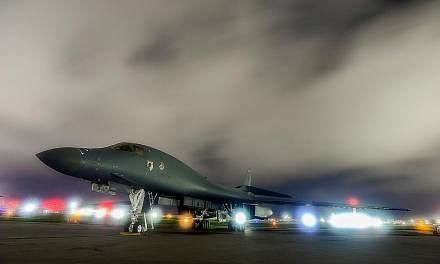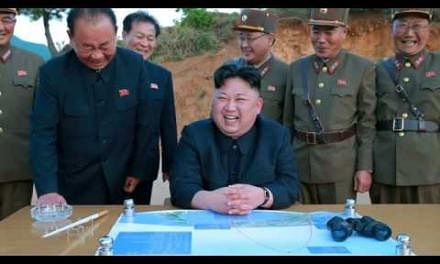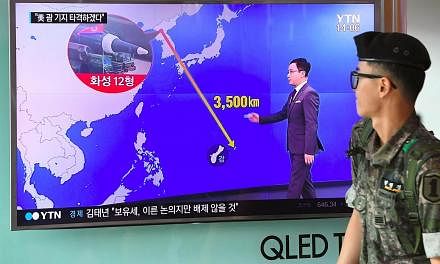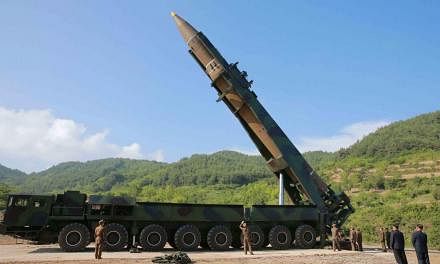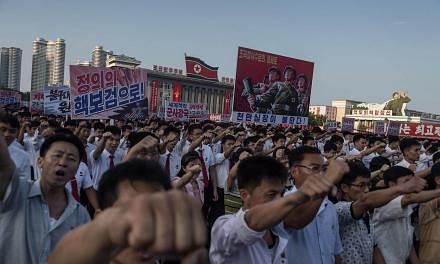Tensions escalated over US President Donald Trump's threatening North Korea with "fire and fury" and Pyongyang saying it would strike Guam.
Later, though, Mr Trump appeared to tone down his sternest warning yet to North Korea, while US Secretary of State Rex Tillerson urged calm.
The sabre-rattling came after reports that the North, which made rapid progress in its nuclear programme by testing two intercontinental ballistic missiles last month, has successfully miniaturised nuclear warheads to fit on missiles aimed at the United States.
Mr Trump first told reporters at his golf course in New Jersey that North Korea has been "very threatening beyond a normal state", and will be met with "fire and fury like the world has never seen" if it continues to provoke.
Hours later, North Korea's military threatened to launch missiles that would create "enveloping fire" around the Pacific island of Guam, nearly 3,500km to the south-east, in order to contain major US military bases there.
The Korean People's Army (KPA) also lashed out at two US strategic bombers deployed from Guam to fly over the Korean peninsula earlier this week, labelling them a form of blackmail. "It is a daydream for the US to think that its mainland is an invulnerable heavenly kingdom," the KPA added.
The exchange rattled global financial markets and raised concern among officials and experts. Some warned that any miscalculation could trigger catastrophe. Washington has put all options, including pre-emptive strikes and dialogue with conditions, on the table.
Mr Tillerson arrived in Guam yesterday on what was said to be a previously scheduled fuelling stop en route back to the US from Malaysia, where he said Americans should "sleep well", insisting there is no imminent threat from North Korea.
Mr Trump, he told reporters, had simply used language that North Korean leader Kim Jong Un "would understand because he (Kim) doesn't seem to understand diplomatic language" and to emphasise America's "unquestionable ability" to defend itself and its allies.
The US President also seemed to backpedal, later tweeting "hopefully we will never have to use this power, but there will never be a time that we are not the most powerful nation in the world".
US Senator John McCain, in a radio interview, urged Mr Trump to watch what he says. "The great leaders I've seen don't threaten unless they are ready to act, and I'm not sure President Trump is ready to act," he said. "It's the classic Trump, in that he overstates things."
France, however, said Mr Trump showed "determination" against the unacceptable circumstance of US territory becoming the target of missile attacks.
South Korea downplayed the situation. A presidential office official told Yonhap news agency that the situation is grave but not an "imminent crisis" yet. In Japan, Chief Cabinet Secretary Yoshihide Suga told reporters that Japan welcomes the US decision to keep all options on the table. China issued a statement asking all parties to avoid raising tensions and urged North Korea's nuclear issue to be resolved with dialogue.
Tensions are expected to remain high in the weeks ahead, though, as Seoul and Washington prepare to embark on another joint military drill. The Ulchi Freedom Guardian exercise is slated to start around Aug 20, and Pyongyang has a history of launching provocations against what it perceives as rehearsal for invasion.
Some experts predicted more inflammatory moves like a sixth nuclear test, but Dr Bong Young Shik of Yonsei University's Institute for North Korean Studies said it would be "suicidal" for North Korea to take any dangerously provocative actions when major US strategic assets are circling the peninsula.
"We are in a stage of a war of words, not a war of military actions," he said, noting that "there is no concrete and explicit military action taken by either side supporting the rhetoric".
